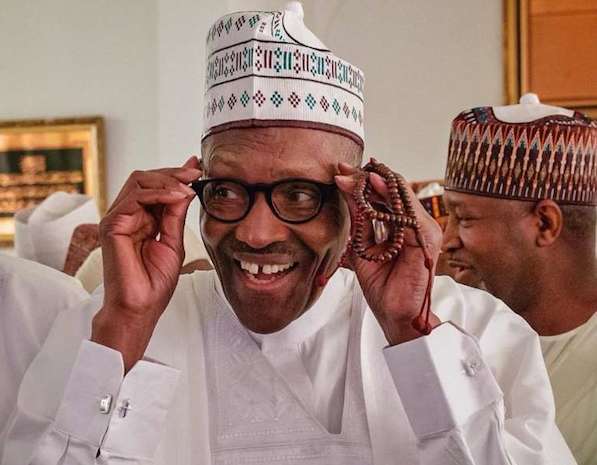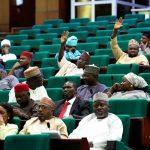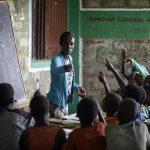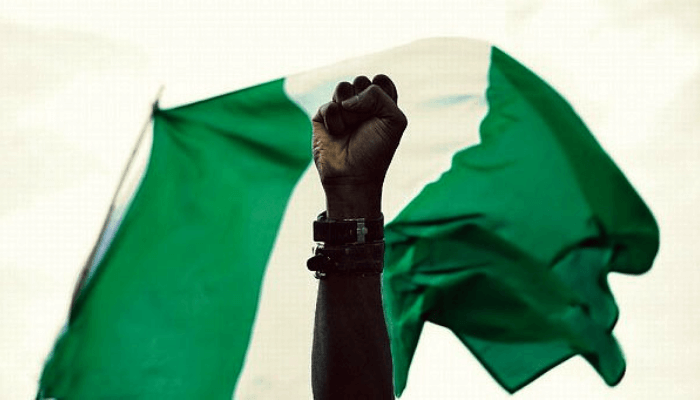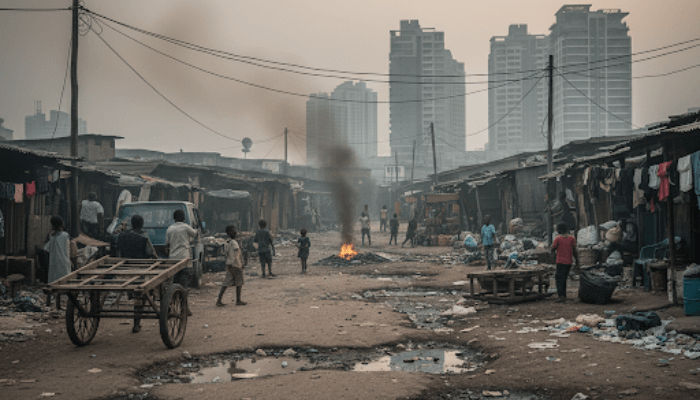President Muhammadu Buhari has completed his term of office. His campaign was premised on fighting corruption, insecurity and fixing the economy. Three and half years down the road, his administration claimed to have accomplished these goals.
Lai Mohammed, Minister of Information, consistently trumpeting the administration’s unrivaled achievements, said in May this year that Buhari has fulfilled all his campaign promises with “unprecedented accomplishment.” In chiding critics for downplaying the government’s successes, he said, “We are putting our nation on the path of sustainable growth and development, diversifying our economy like never before, tackling corruption at its very core and devising creative measures to secure lives and property.”
In December 2015, just seven months in office, President Buhari proclaimed Boko Haram “technically defeated” because the terror group cannot mount ‘conventional attacks.” For him, this was another promise delivered.
On the economic front, the government recently issued a long list of achievements. Among these include the restoration of economic growth, declining inflation, increasing investment in agriculture and infrastructure, promotion of transparency and accountability in public finances, support to SMEs and improvement in the ease of doing business; growing power generation and investment. The government also launched the economic recovery and development plan and claimed to have saved over N2 trillion through the Single Treasury Account, which the Goodluck Jonathan administration initiated, while boosting local content in production. It also approved the revamping of the Bank of Agriculture and enhanced patronage of the rail system. This is the third promise delivered.
READ ALSO: Unrelenting killing of soldiers by Boko Haram leaves Buhari vulnerable as PDP pounce
However, evaluations by other sources indicate otherwise. Between 2016/2017, the country experienced grinding recession which a sizeable number of the population believes still pervades. The CBN and several international bodies have warned of a possible relapse. The Brookings Institution, quoting data from the World Poverty Clock, stated that Nigeria now has over 87 million people living in poverty, thus becoming the global poverty capital. The Universal Basic Education Commission also disclosed that Nigeria’s out-of-school children have surged from 10.5 million to 13.2 million under Buhari’s watch. Unemployment is still exceptionally high. Inflation, which steadily declined since January 2017, has resumed an upward climb, even as the rates remain in double digits. Inequality is growing at an alarming rate. In the latest ‘Commitment to Reducing Inequality’ index issued by the International Monetary Fund, Nigeria was rated 157th out of 157 countries. The Fund also recently revised the country’s economic growth to 1.9 percent, from the 2.1 percent earlier projected. Our debt burden is growing.
The fight against corruption, politically correct at the onset, has malfunctioned. It has dovetailed into a weapon targeted at opponents, while corruption among and within Buhari’s government and party is left to fester, thereby stoking claims of bias. The few steps against ‘his people’ followed public opprobrium. As a national malaise, corruption is thriving. Threats and arbitrariness have replaced a holistic and strategic execution of the anti-corruption war. But for the administration, with the fight as an end, it is mission accomplished.
Today, Boko Haram has not only persevered; it has diversified into two deadly offshoots focused on soft and military targets, all delivering lethal outcomes. The categorization of Boko Haram as one of the world’s deadliest terror groups still stands. Most Internally Displaced Persons’ camps are still overpopulated. Some of the Chibok girls abducted four years ago and Leah Sharibu abducted from Dachi, Yobe state, in February remain in captivity.
Juxtapose the current situation against what Buhari pledged while speaking in February 2015 at Chatam House, London. “Let me assure you that if I am elected president, the world will have no cause to worry about Nigeria as it has had to recently; that Nigeria will return to its stabilizing role in West Africa; and that no inch of Nigerian territory will ever be lost to the enemy because we will pay special attention to the welfare of our soldiers in and out of service, we will give them adequate and modern arms and ammunitions to work with; we will improve intelligence gathering and border controls to choke Boko Haram’s financial and equipment channels; we will be tough on its root causes by initiating a comprehensive economic development plan promoting infrastructure development, job creation, agriculture and industry in the affected areas. We will always act on time and not allow problems to irresponsibly fester; and I, Muhammadu Buhari, will always lead from the front and return Nigeria to its leadership role in regional and international efforts to combat terrorism.”
In reality, Nigeria today is filled lamentations, recalling memories of when Buhari was military Head of State. Those who said he was an extremist, ethnic bigot, rigid and vindictive now offer a painful refrain: ‘I told you so’. They had argued that Buhari lacks the national stature and mindset; that he would trigger very divisive tendencies in the country; that he has not evolved as a democrat. He inherited Boko Haram and Niger Delta militancy and undoubtedly made considerable efforts to tackle these. But the unraveling of murderous herdsmen, secessionist agitation, surge in kidnapping and suicides, massive migration, unemployment, brazen bank robberies and depression are troubling pointers under his watch. The militarization of governance and hounding of opposition have practically decapitated the country’s democracy.
The President abhors the restructuring of the country. Instead, he has elevated clannishness to an unmatched level with his kinsmen placed in key government positions, regardless of constitutional provisions and equity. Unfortunately, this primordial approach to governance has not helped the course of nation-building. The Tide, in an editorial to commemorate Democracy Day on May 29, 2018 wrote: “To many, he has not even kept his words as President to all Nigerians in all facets of governance. Nepotism, sectionalism, tribalism religious bigotry, witch-hunting, clannishness, ineptitude, ignorance, distraction, confusion, aloofness, poverty of ideas and any imaginable vice, many insist, have eroded his brand and whatever was remaining of his integrity.”
President Buhari’s seeming aloofness, infamously called ‘body language’, whether by design or ignorance, was initially effective as it created the impression of a deep thinking person brimming with patriotism and willpower to make such deft interventions to reverse the country’s barrage of ills, especially corruption. But, almost four years in office, his indisputable aloofness has melted into nothingness and spurned claims of insensitivity, bigotry and wickedness. Such terms as incompetence, ineptitude, cluelessness, despotism and rudderless are common prefixes. It prefers to live in denial and everything is fine, except among its adversaries.
Abubakar Atiku, PDP presidential candidate for the 2019 elections, made an interesting allusion when he said recently that Buhari “has never run a successful private business throughout his life.” Compare against Buhari’s history.
It will be worthwhile to undertake a survey of Daura to ascertain how Buhari’s interventions have improved the level of education and healthcare; to what extent rural farmers have been empowered to boost productivity and livelihood; the impact of the helipad, transport university and military barracks sited in Daura on ordinary people.
Leading to next year’s general elections, we will likely experience heightened desperation to cripple the opposition and rule of law, and in collaboration with INEC and partisan security agencies, attempt to strangle the will of the people. His 2019 hopes now hinge on the unenlightened millions of traumatized Nigerians who have been brainwashed to think that their miserable lives stem from PDP’s misrule and some sort of ordination by God, not the failure of his leadership. Another term for Buhari scary: complete unraveling of a dictatorship and threat to the country’s very existence. But, all who wish Nigeria well must remain steadfast and take every legitimate step to reclaim the country from its current freefall.
OKEY NWACHUKWU
Nwachukwu is a Lagos-based communications consultant.




